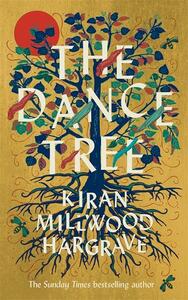Take a photo of a barcode or cover
Really not my favourite.
I found the plotline aboutAgnethe and Ida immediately obvious. And I wasn’t invested enough in Lisbet’s relationship with Eren to make that a motivation. Finished it cause it was short rather than cause I really cared.
I found the plotline about
challenging
dark
sad
tense
slow-paced
Plot or Character Driven:
Character
Strong character development:
Yes
Loveable characters:
Yes
Diverse cast of characters:
Yes
Flaws of characters a main focus:
No
emotional
sad
slow-paced
Plot or Character Driven:
Character
Strong character development:
No
Loveable characters:
No
Diverse cast of characters:
Yes
Flaws of characters a main focus:
Yes
3.5 ⭐️
Shorter book and it took me half way through to get into it, but then it was really good! Just seemed like a lot of set up and then all the action at once.
Shorter book and it took me half way through to get into it, but then it was really good! Just seemed like a lot of set up and then all the action at once.
adventurous
dark
emotional
hopeful
inspiring
reflective
sad
medium-paced
Plot or Character Driven:
A mix
Strong character development:
Yes
Loveable characters:
Yes
Diverse cast of characters:
Yes
Flaws of characters a main focus:
Yes
reflective
medium-paced
Plot or Character Driven:
A mix
Strong character development:
Complicated
Loveable characters:
No
Diverse cast of characters:
Yes
Flaws of characters a main focus:
Yes
dark
emotional
mysterious
reflective
sad
tense
slow-paced
Plot or Character Driven:
Character
Strong character development:
Complicated
Loveable characters:
Yes
Diverse cast of characters:
No
Flaws of characters a main focus:
Complicated
challenging
dark
emotional
sad
tense
medium-paced
Plot or Character Driven:
A mix
Strong character development:
Complicated
Loveable characters:
Yes
Diverse cast of characters:
Yes
Flaws of characters a main focus:
Yes
A central theme of this book is womanhood and miscarriage which the author draws upon her own expedience making it a powerful read. This book explores the social ladder of the 17th century Europe. There are the ruling elites and the church that hold wealth. They maintain power by keeping the peons indebted to them and enforce this through the violence with their police force (the 21). The peons attempt to rebel because of their unfair treatment. At the bottom of this ladder are women and people of color. During the stressors of the drought the church needs to squeeze it's subjects to maintain it's strength so it attempts to indebt Henne and Lisbeth. Henne feels like his rights are being infringed so he abandons his pregnant wife to fight with the rebels, not for her but for his unborn son. All he sees in her is a means to produce heirs. During this periods women were viewed only as mothers and highly susceptible to deviance and the devil (ideas that still somehow permeate modern society). In this story women are beaten and mistreated to uphold the patriarchy. It is no wonder that the women in this book descend into a crazed death dance, it appears that this is the only freedom they have.
I was going to give this book a worse review because of the depiction of Eren (Lisbeth's love interest). This book examines parts of 17th century life through a modern feminist lens and I think Eren's experiences in this novel reflect that. From Lisbet's first encounter with Eren she sees she as dangerous brown man yet this danger is connected to her attraction him. She finds herself more and more attracted to him as she realizes how thoughtful and empathetic he is especially in comparison to her actual husband who abandons her for most of the novel. Lisbeth's relationship with Eren is based upon unequal power dynamics. Eren is Turkish and throughout the story characters express that they view him as inherently dangerous and that he would be killed if he did anything viewed as remotely threatening. Through her relationship with Eren, Lisbet is able to explore having power. This is ultimately proven by Eren's fate at the end of the story. Lisbet allows him to be a scapegoat for her killing of Plater, instead of accepting responsibility for her actions she passes it onto him because she has the power to do so. In modern day brown men are often sexualized while simultaneously being viewed as dangerous and I think this is alluded to in the book but not as well discussed as other themes.
I was going to give this book a worse review because of the depiction of Eren (Lisbeth's love interest). This book examines parts of 17th century life through a modern feminist lens and I think Eren's experiences in this novel reflect that. From Lisbet's first encounter with Eren she sees she as dangerous brown man yet this danger is connected to her attraction him. She finds herself more and more attracted to him as she realizes how thoughtful and empathetic he is especially in comparison to her actual husband who abandons her for most of the novel. Lisbeth's relationship with Eren is based upon unequal power dynamics. Eren is Turkish and throughout the story characters express that they view him as inherently dangerous and that he would be killed if he did anything viewed as remotely threatening. Through her relationship with Eren, Lisbet is able to explore having power. This is ultimately proven by Eren's fate at the end of the story. Lisbet allows him to be a scapegoat for her killing of Plater, instead of accepting responsibility for her actions she passes it onto him because she has the power to do so. In modern day brown men are often sexualized while simultaneously being viewed as dangerous and I think this is alluded to in the book but not as well discussed as other themes.
An enjoyable historical queer fiction. Hargrave has a particular style so this felt similar to The Mercies, a tragedy with slices of hope.




